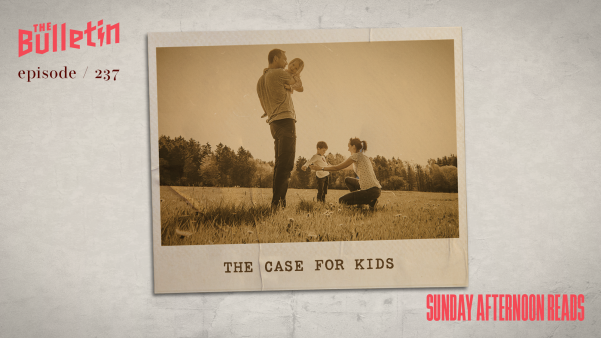Spiritual gifts can cause confusion. As a pastor in a charismatic church, I encounter it all the time. Some are worried whenever they hear talk of the gifts of the Holy Spirit—languages, prophecy, healing, miracles, and so forth—and others are worried whenever they hear talk of anything else. The second group risks turning a good thing into an ultimate thing; the first risks dismissing a good thing because it might frighten the horses.
God’s miraculous gifts have often been met with mixed responses. Some pour scorn over them, and some fawn over them. For a better way to think about the place of gifts in the contemporary church, it’s helpful to think back to an Old Testament example: Spiritual gifts are like manna.
There are all sorts of reasons for the comparison. Both are miraculous gifts that come down from heaven daily to sustain people. Not for nothing does Paul describe manna, and the water from the rock, as “spiritual food” and “spiritual drink” (1 Cor. 10:3–4), before moving on to talk about “spiritual gifts” (1 Cor. 12–14). Both are easily misunderstood. When the Israelites first encountered manna, they asked each other, “What is it?” When the church first encountered spiritual gifts, some muttered that those using them were drunk.
Both gifts bear witness to the miracle-working power of God. Both are given specifically to his covenant people. Both can be overemphasized by enthusiasts, like the Israelites who kept their manna until the next morning only to find it had gone rotten, or the hyper-charismatics who get more excited about speaking in tongues than the gospel. At the same time, both prompt grumbling from others, who complain that they are not as exciting as the gifts God’s people used to have.
Yet perhaps the most interesting parallel—and probably the most useful—is this: Both manna and spiritual gifts are given for a specific purpose, for a specific period in history. They are meant for people in the wilderness, that awkward period between slavery and promise, Egypt and Canaan, redemption and inheritance. Israel did not need manna in Egypt, because they had melons and garlic; neither would they need it in the Promised Land, because they would have milk and honey. In the meantime, however, they needed manna and quail and water from the rock to sustain them on their desert travels.
So do we. Like Israel, we are on a slow and difficult pilgrimage from past rescue to future rest. We have been set free from slavery to sin and death, but we await the day when we can settle in our true homeland. In the past we did not use spiritual gifts, because the Spirit had not yet been given. In the new creation we will not need to, because what is mortal will have been swallowed up by life. But in the meantime, since the journey is long, God provides us with heavenly presents (and heavenly presence) to unite us, make us strong, and sustain us on our desert travels.
Paul, writing to a church that was confused on this point, spelled it out: “Love never fails. But where there are prophecies, they will cease; where there are tongues, they will be stilled; where there is knowledge, it will pass away. For we know in part and we prophesy in part, but when completeness comes, what is in part disappears” (1 Cor. 13:8–10). As wonderful as the gifts are—and you should “eagerly desire” them (1 Cor. 14:1)—they will fade away when Jesus returns. Nobody needs manna when milk and honey are available.
Spiritual gifts, like manna, point forward to the day when they will no longer be needed. So believers, in the meantime, should receive and rejoice in God’s gifts, but without fixating on them as the primary tests of spirituality. Love, not the gifts, is the mark of the Spirit’s work that will last forever.
No Israelite, on reaching the land after 40 years, went out in the morning to scoop white flakes off the ground. They were too busy planting crops and harvesting grapes. In the same way, no Christian, on finally reaching the new creation, will be pursuing gifts of knowledge or healing. We will be too busy worshiping the One to whom all knowledge and healing points.
Andrew Wilson is teaching pastor at King’s Church London and author most recently of The Life We Never Expected (Crossway). Follow him on Twitter @AJWTheology.
Are we right about this? Off the mark? Share your feedback here.










